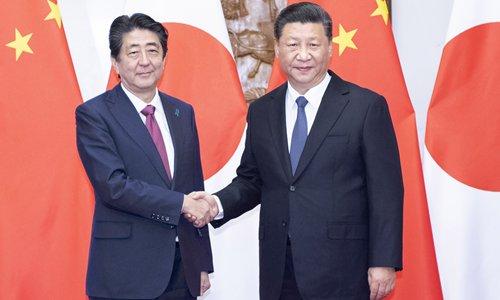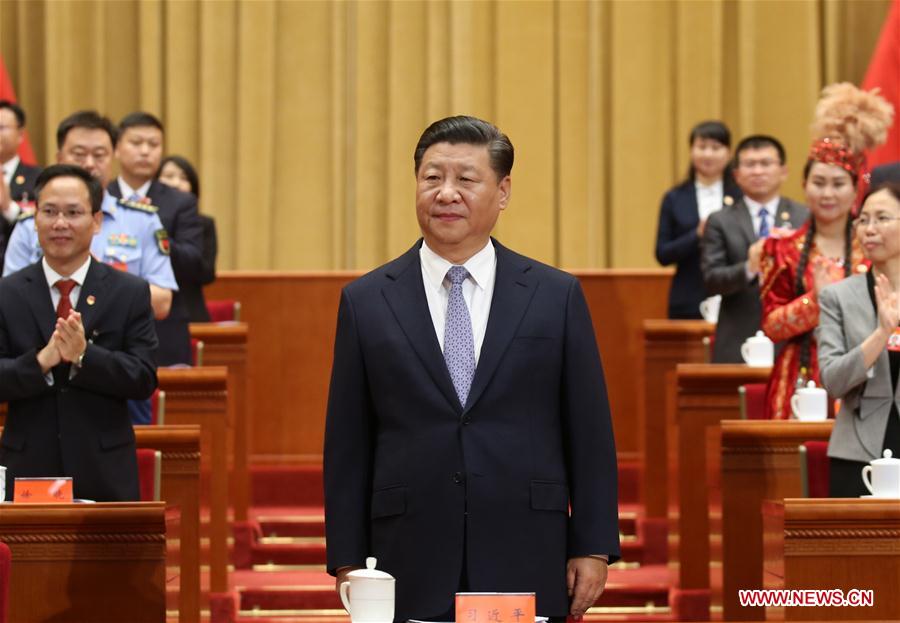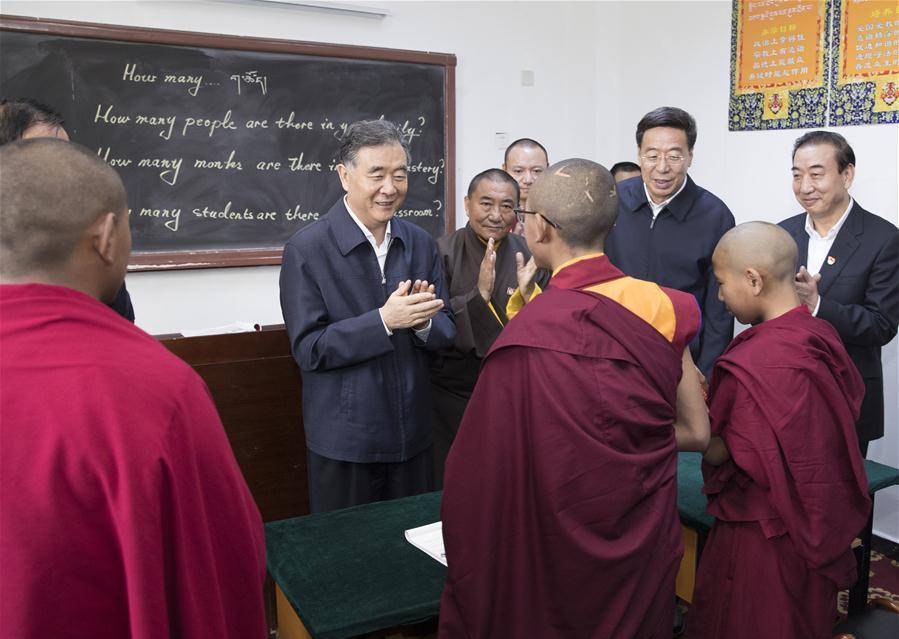Xi: China, Japan should be partners

Chinese President Xi Jinping greets Japanese Prime Minister Shinzo Abe at the Diaoyutai State Guesthouse in Beijing on Friday. Photo: Xinhua
Chinese President Xi Jinping on Friday welcomed Japanese Prime Minister Shinzo Abe on his official visit to Beijing, saying that he appreciated Abe's repeated willingness to improve China-Japan relations in recent years.
Xi pointed out that as two of the world's major economies, the long-term sound and stable development of China-Japan relations is in the fundamental interests of the two peoples, and is also widely expected by the region and the international community.
Xi stressed that under the new situation, China and Japan are increasingly interdependent in the bilateral arena and have broad and diverse common interests and common concerns.
The two countries should practice the political consensus of "mutually becoming partners and not posing threats," Xi said.
Abe said that the Japanese side welcomes and supports China to further expand its opening-up to the outside world and is willing to continue to actively participate in China's development process, China Central Television reported on Friday.
"The Japanese side is willing to work with China to enhance high-level and all levels of exchanges, properly manage and control the differences between the two sides, and work together for regional stability and prosperity," he said.
Abe said theBelt and Roadinitiative is a promising concept. Japan is willing to strengthen cooperation with China in a wide range of fields, including jointly exploring third-party markets.
Earlier on Friday at the Great Hall of the People in Beijing, Chinese Premier Li Keqiang welcomed Abe at the first Forum of China-Japan Cooperation on the Third-Party Market, where he announced that the two countries had inked more than 50 business deals worth more than $18 billion.
Chinese experts pointed out that China and Japan are poised to reset their bilateral relations, and this improvement in bilateral relations will lead the integrity of East Asia.
"Cooperation in third-party markets shows the nature of the relationship between China and Japan has been transformed from competitive to cooperative," Ruan Zongze, executive vice president of the China Institute of International Studies, told the Global Times on Friday.
This would serve as an impetus for Beijing and Tokyo to deepen the bilateral relationship and move forward to a new phase, Ruan said.
Akira Terashi, an employee from a large Japanese material company who attended the forum, said "the overall atmosphere of the forum was friendly and I was very happy to be a representative of the Japanese side."
If Chinese companies have projects in third-party markets in the future, they can use materials provided by Japanese companies, Terashi told the Global Times on Friday, adding that he hoped to find new business opportunities.
Shi Ming, director of the China-Japan-South Korea Enterprises Exchange Center under the China Chamber of International Commerce, said that the idea of third-party market cooperation is a new concept proposed by China and Japan.
The forum is a good start and it has established a communication platform to exchange information and deepen understanding, he said.
"Although there may be some difficulties in the actual operation stage, I believe that after continuous communication and integration, the two sides will find more cooperation opportunities in the third-party market to achieve mutual benefit and win-win between the two parties and the three parties," Shi told the Global Times on Friday.
Currency swap deal
China's central bank said Friday that it has inked a bilateral currency swap agreement with its counterpart in Japan. The agreement will allow the two sides to swap a total of 200 billion yuan ($28.8 billion) for 3.4 trillion Japanese yen and vice versa, the People's Bank of China (PBC) said on its website.
The two sides also signed a memorandum of cooperation for a yuan clearing arrangement in Japan. The PBC said the Bank of China's Tokyo branch has been designated as the yuan clearing bank in Japan.
The move will help enhance the financial stability of the two countries and facilitate bilateral economic and financial exchanges, Ruan said.
Some Western media speculated that ties between China and Japan are growing because of recent US policy changes.
Ruan argued that the improvement in bilateral ties is due to pragmatic concerns. "The relationship between China, Japan and the US should be cooperative. In future, China-Japan relations may face disturbances from the US, but Japan should abandon its zero-sum mentality and not take sides."
Your Comment
Name E-mailRelated News
-
-
China refutes US allegation of "debt diplomacy"
A Chinese Foreign Ministry spokesperson on Wednesday refuted the US allegation that China uses so-called
-
-
Premier Li attends 12th ASEM for global governance
Chinese Premier Li Keqiang is scheduled to attend the 12th Asia-Europe Meeting Summit (ASEM) in Brussels on Thursday and Friday, which a Chinese expert asserted would be a crucial turning point for global governance.
-
-
China-Japan ease exports with new customs agreement
China and Japan on Friday signed a customs agreement on mutual Authorized Economic Operator (AEO) status, among efforts by the two neighbors to further boost bilateral trade and economic cooperation.
-
-
Chinese scientist awarded Packard Fellowships for Science and Engineering
Weizhe Hong, a Chinese assistant professor of biological chemistry and neurobiology at the University of California, Los Angeles (UCLA), was one of 18 outstanding young scientists to be awarded the Packard Fellowships for Science and Engineering for 2018, UCLA said on Tuesday.
-
-
At least 18 dead, 164 injured in Taiwan train derailment
At least 18 people died and another 164 injured as of 11 p.m. Sunday, after a passenger train derailed in Taiwan earlier in the afternoon, according to the island's railway authority.







